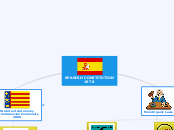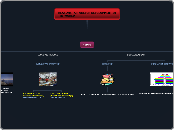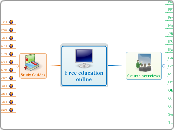IMPLMENTATION CALENDAR
2020/2021: 1st and 2nd Baccalaureate
2019/2020: 3rd and 4th ESO
2018/2019: 1st and 2nd ESO
2017/2018: Third cycle primary school
2016/2017: Second cycle primary school
2015/2016: First cycle primary school
2014/2015: Pre-school education 5 years old
2013/2014: Pre-school education 4 years old
2012/2013: Pre-school education 3 years old
CURRICULAR AND ORGANIZATIONAL
DOCUMENTS
After 2012
PLC
PLC - School linguistic project
Before 2012
PNL
PNL - Linguistic normalization plan
DPP
DPP - Specific design of the program
EDUCATIONAL PROGRAMS
2012
PPEC
PPEC - Sepanish Teaching Plurilingual Program
PPEV
PPEV - Valencian Teaching Plurilingual Program
1998
PIPE
PIPE - Progressive incorporation enriched program
PEVE-PILE
PEVE - Teaching through Valencian Enriched Program
PILE - Linguisic Immersion Enriched Program (Only in Primary Education)
1983
PIP
PIP - Progressive incorporation program
PEV-PIL
PEV - Teaching through Valencian Program
PIL - Linguisic Immersion Program (Only in Primary Education)
Curriculum
If we scan the text of both documents, the communicative approach is at the heart of foreign language teaching. However, curriculum of non-linguistic areas that are taught through a foreign language is not present.
SPANISH CONSTITUTION
1978
Main Organic Laws
Both are Organic Laws of Education (LOE amd LOMCE). Nowadays are coexisting because LOMCE doesn't repeal LOE but complements it.
LOMCE
2013
LOMCE pretends the domain of a second language or even a third foreign language. This has become a priority in education as a result of globalization. The European Union sets the promotion of multilanguism as an essential objective of the construction of a European project.
Decree 127/12 of 3rd August.
Plurilinguism.
This Decree aims:
- to respond to the growing social demand to advance progressively towards plurilingualism and linguistic diversity which defines the most advanced societies.
- to acknowledge the efforts made by the Valencian Community teaching centres towards plurilingualism.
- to ancourage and stimulate the already existing plurilingual programs.
- to facilitate the indispensable teacher training in curricular languages and in the specific methodology required for the application of plurlingual programs.
Decree 87/2015 of 5th June.
Curriculum of Secondary Education and Baccalaureate.
Decree 108/14 of 4th July.
Curriculum of Primary Education.
LOE
2006
LOE improves the acquisition of a basic competence in at least one foreign language to enable the speakers to express and understand simple messages and get by in everyday situations.
Decrees of Multilingual Educational Programs
in Infant, Primary and Secondary Education.
Decree 111/2007 of July 20th.
Primary Education Curriculum.
Royal Decree 1631/2006 of 29th of December.
Secondary Education.
Royal Decree 1513/2006 of December 7th.
Primary Education.
Royal Decree 1630/2006 of 20th December.
Infant Education.
Statute of Autonomy
of the Valencian Community
2006
Spanish and Valentian are recognized as coofficial languages in the community.
Bilingualism is at the heart of our legal framework. That's why multilingualism is only a little step further.
Law of Use and Teaching
of Valencian
1983
It's a big step because implements a bilingual educational system.
Curriculum organization must ensure the achivement of bilingual goal.
Demands teacher training to devop this challenge.
Decree 79/1984
About application of the LUEV









